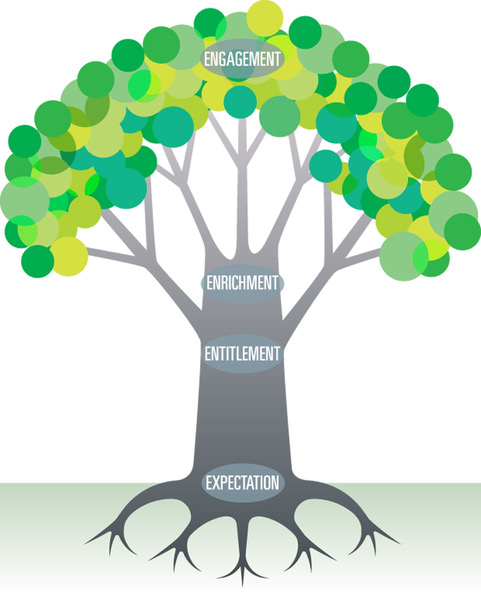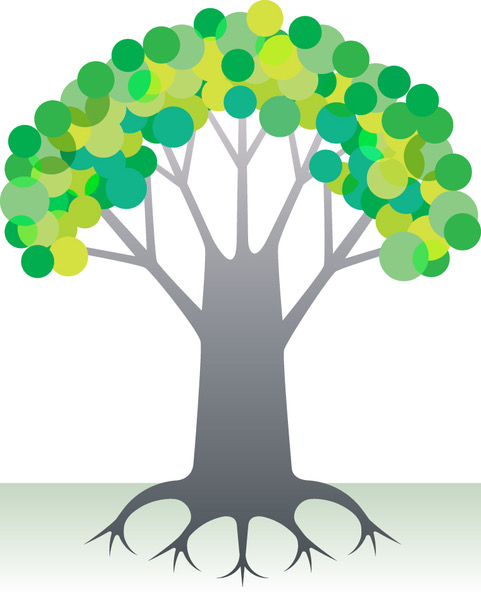Principles for Learning

Expectation
The vision of Equals Trust states how our schools work together collaboratively and in partnership with each other to achieve the best for the children in our care. It sets the standards for our schools and the parameters of expectation. These are our roots and expectations of all schools within Equals Trust.
We work collaboratively together with a clear purpose and direction, where:
- teaching and learning is at the centre of all we do;
- children enjoy, are engaged in and learn from a curriculum that challenges and excites them;
- we develop responsible citizens who value diversity;
- we ensure a culture of high expectations amongst all our children;
- children value themselves and each other, developing the self-confidence and resilience to face future challenges;
- the contributions made by all stakeholders are valued.
We work effectively in school partnerships to enhance our provision by:
- developing broad and balanced curricula that are: distinctive, detailed (powerful knowledge and skills), progressive and ambitious for all pupils
- extending the learning opportunities and activities for pupils;
- enriching the curriculum through partnership working and shared resources;
- enabling the greater sharing of excellent teaching and learning;
- enhancing the professional development of teaching and support staff;
- building mutual support and accountability for Headteachers and Governors;
- securing cost and resource efficiencies through joint commissioning.

Entitlement
The National Curriculum is at the core of each of our schools’ curricula. It has been extended and developed (using expertise from subject experts and subject associations) to be distinctive to each trust school and its pupils. Each subject is seen as a discipline that has its own unique concepts, processes and knowledge and skill structures. We often identify these as the ‘curricular elements’ and/or the ‘curricular lens’ through which learning is viewed and developed. Where opportunities for cross curricular study are meaningful and purposeful, they are taken. There is a clarity and detail over the most important knowledge and skills that pupils are to learn and develop at each stage if they are to achieve the ambitious curricular goals we have set as the end points of ‘primary’ education in our school. Time has been spent considering and continuously reviewing the order and sequence of this curricula content. There is an ambition for all pupils to have access to a full curriculum ad to achieve and attain our ambitious goals for each subject.
In addition to our rigorous approach to the curriculum that pupils study we have an equal focus on how this is taught. Work with partners such as Research Schools and Teaching Schools enables us to support and challenge teachers to develop their subject knowledge, pedagogy and wider practice. We see this as a core element of our work as it is how we will ensure pupils receive their entitlement and ensure teaching -and thus learning- is its most effective. Our range of Equals Trust Practitioners (Lead Practitioners, Research Practitioners and Teaching & Learning Practitioners) support the development of curricula and teaching across Trust schools.
Assessment for Learning is an essential element of ensuring the entitlement is provided. This assessment at all levels (from low stakes questioning activities to end of year tracking of attainment) is used both formatively and summatively with clear purpose and focus. Assessment processes have been reviewed to ensure they are not burdensome on staff and but are informative and purposeful. Trust systems mean that staff time is not spent having to calculate or generate attainment and progress data. Time can go into analysing and planning responses to the data that is automatically provided. We have developed a set of ‘Equals Trust Principles for Assessment’ these enables schools to work with structured and helpful guidance but in a way that is best suited to their individual school. The consistent methods of data collection and automatic analysis of performance enables the Trust to support schools through common initiatives and trust-wide school improvement.
Continuous improvement of this ‘entitlement’ is the core purpose of our School Improvement Strategy.

Enrichment
Branching out with Trust-wide activities to enrich the Entitlement.
All schools undertake a huge amount of enrichment activities, for example educational visits and events. Enriching the curriculum through Trust-wide activities are an important part of our collaborative work together, making our Trust a special place for children to thrive. Children will meet and interact with children from other schools, learn from each other and take part in inter-school activities and events.
For example:
- Diversity Project- Pupil Leaders visiting places of worship and sharing learning with peers. All pupils receiving visitors of different faiths and cultures.
- Sports – inter-school tournaments and specialist coaches
- Cultural Story Telling Workshops– Children learning the art of storytelling, working in and supporting children from other schools, ultimately holding a performance evening of storytelling.
- Singing – all schools performing at the Albert Hall in the annual EQT Concert
- E-Safety project – children from all schools developing safety guidance and information.

Engagement
The two main areas of CPD and School Improvement enable us to deliver the Entitlement through the canopy of Engagement.
Through the work of the School Improvement Lead, our Leadership Group and our range of Equals Trust Practitioners (Lead Practitioners, Research Practitioners and Teaching & Learning Practitioners) we ensure the best practice identified in our schools is shared. This is achieved through our Subject Leader groups, school to school and peer support. All of this -and our partnerships with other organisations- mean we are able to provide excellent shared professional development that enables our staff to thrive and to provide the best practice for the children in our care.
We have a range Subject Leader groups and networks for other areas (such as Pupil Premium and EYFS ) as well as ongoing projects to enhance teaching and learning. This includes the development of Equals Trust Practitioners: ‘Lead Practitioners’ who are externally accredited and provide support to both trust and non-trust schools, ‘Research Practitioners’ who undertake specific CPD and learning that enables them to offer support to colleagues in their own and other schools and also ‘Teaching and Learning Practitioners’ who have expertise in specific subjects, year groups or areas of practice.
We are also able to access continuing professional development in collaboration with others outside of the Trust, for example Teaching Schools, Research Schools, the Rushcliffe Learning Alliance networks and the East Midlands Education Support Service. Much of this is made bespoke to the needs of our schools.
As we state in our vision ‘teaching and learning is at the centre of all we do’.

